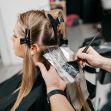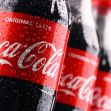The label for “Huggies Natural Care® Baby Wipes” displays “nature-based imagery” of plants and contains words like “natural care” and “plant-based ingredients with 99% purified water.” No doubt these pictures and phrases are likely to appeal to parents who want to protect their babies from harmful chemicals. In reality, the wipes contain ingredients that are both natural and synthetic.
One unhappy mother filed a putative class action suit against Kimberly Clark Corp., Huggies’ parent company, claiming their label violates three California consumer protection laws. She also alleged Kimberly Clark was guilty of unjust enrichment and breach of warranty.
Plaintiff Summer Whiteside, who filed the lawsuit on behalf of herself and “others similarly situated,” lost in district court before Judge Jesus G. Bernal of the Central District of California, who dismissed her case for failure to state a claim, saying the label was not misleading as a matter of law. She appealed to the Ninth Circuit where she won a partial victory. On July 17, the Circuit Court found no deception but sent the case back for reconsideration of plaintiff’s claims about misleading statements that did not warn consumers with an asterisk regarding claims made on the front of the package.
Writing for a unanimous 3-0 panel, Circuit Judge Ronald M. Gould affirmed Bernal’s dismissal for one category of statements but sent the case back to Bernal for reconsideration of one of the plaintiff’s claims. Circuit Judge Salvador Mendoza and Senior Sixth Circuit U.S Circuit Court of Appeals Judge Ronald G. Gilman, sitting by designation, concurred with Gould.
Bernal’s opinion had divided the label statements into two separate categories. The first was for labels that had an asterisk * after the words “plant-based wipes,” and the second was for claims on the front label without an asterisk. Bernal concluded that both categories “were not misleading as a matter of law.” His decision was supported by words on some Huggies’ front labels that stated the “wipes were not wholly plant-based but instead were “70%+ by weight.” He also said the “natural and synthetic ingredients” disclaimer on the back label “…dispelled whatever misrepresentation allegedly exists.”
This decision was supported by three California consumer protection laws:
- The Unfair Competition Law, which prohibits false advertising and illegal business practices;
- The False Advertising Law, which criminalizes false or misleading statements in ads; and
- The Consumer Legal Remedies Act, which prohibits several categories of unfair and deceptive acts in a “transaction… that result in the sale or lease of goods or services.”
The next step the Ninth Circuit took was to distinguish between information on the front and back labels, which the court calls the “front-back dichotomy.” Under the consumer protection laws, if the language on the front panel is “plausibly misleading to a reasonable consumer,” the back label will not be reviewed. But if the front label is “ambiguous,” the back label may be looked at as well. The back label of the Wipes package does list ten chemicals, including Butoxy Peg-4 PG Amodimethecone, Malic Acid, and Tocoferyl Acetate.
Using these parameters, the Ninth Circuit reversed the district court’s dismissal of Whiteside’s claims regarding the Unasterisked Products, finding in favor of the plaintiff’s arguments that a reasonable consumer could believe the front label unambiguously claimed that the wipes do not contain synthetic ingredients, so there is no reason for anyone to look at the back panel’s ingredient’s list. However, the Circuit Court dismissed claims regarding the Asterisked Products because the justices believed reasonable consumers would look at the back panel when they saw the asterisk.
The Ninth Circuit opinion then took up each of Whiteside’s claims that were based on California’s consumer protection laws, which are all based on the “reasonable person standard” under which consumers must demonstrate the probability that members of the public are “likely to be deceived” by the defendant’s marketing claims or their claims will be dismissed.
Next, the opinion reviewed precedents related to the front-back dichotomy and whether the back label’s ingredient list that names the chemicals in the wipes should be considered at the pleadings stage as Bernal did. It concluded that a front label is not ambiguous just because it is open to two possible meanings. Rather, it is ambiguous if reasonable consumers “would require more information before reasonably concluding that the label is making a particular representation.” That is when the back label can be considered by the district court at the “dismissal stage.”
Under this analysis, Circuit Justice Gould then concentrated on the issue of whether the front label is ambiguous, so the back label could also be considered. He concluded that Whiteside “plausibly alleged that a reasonable consumer could interpret the front label as unambiguously representing that the Products do not contain synthetic ingredients, and that a reasonable consumer would not necessarily require more information from the back label before so concluding.” He also stated that reasonable consumers could understand the term “plant-based” to imply that all ingredients are non-synthetic.
Finally, he turned to the Asterisked Products and whether the symbol and the words on the front label were misleading. Here, the Ninth Circuit relied on the Federal Trade Commission’s (FTC) “Green Guides” that say marketers must qualify any claims about renewable materials unless the product in question “is made entirely with renewable materials.” Statements such as “made from 50% plant-based renewable materials” would thus be required. The opinion then affirmed the district court’s dismissal of Whiteside’s complaint against Asterisked Products because of its qualified statements and its back label ingredients list, which together make “it impossible for the plaintiff to prove that a reasonable consumer was likely to be deceived.”
All of Whiteside’s other claims were dismissed, but she will have another chance to go back to district court to prove that she is, in fact, a reasonable consumer who was misled by the statements on Unasterisked Products.






